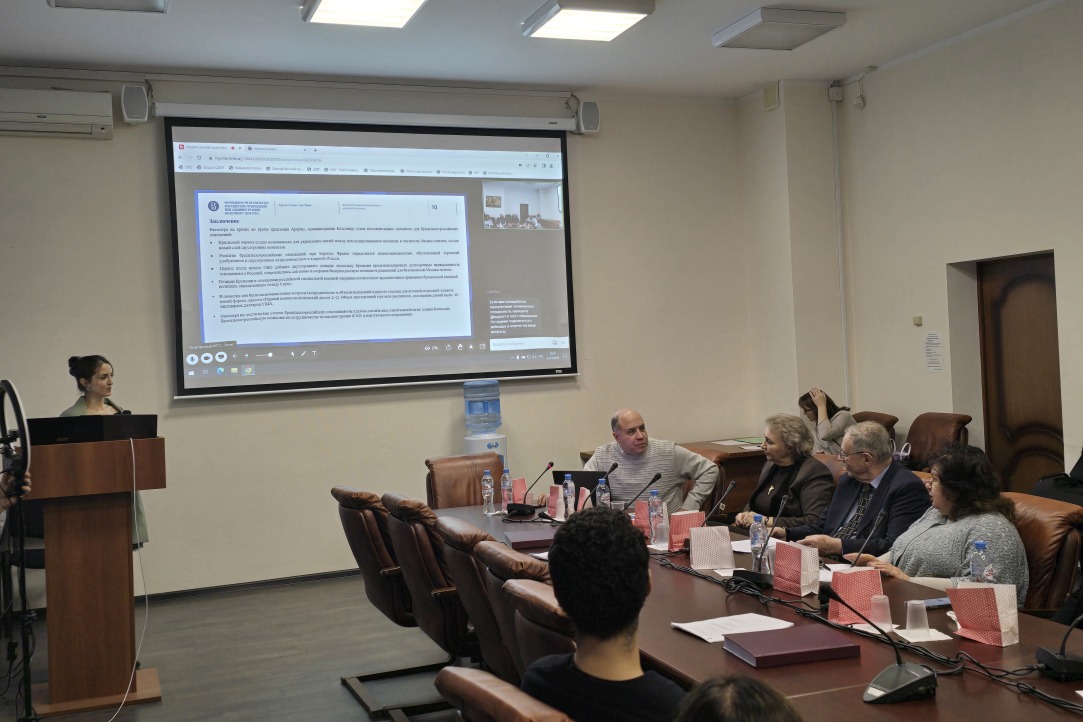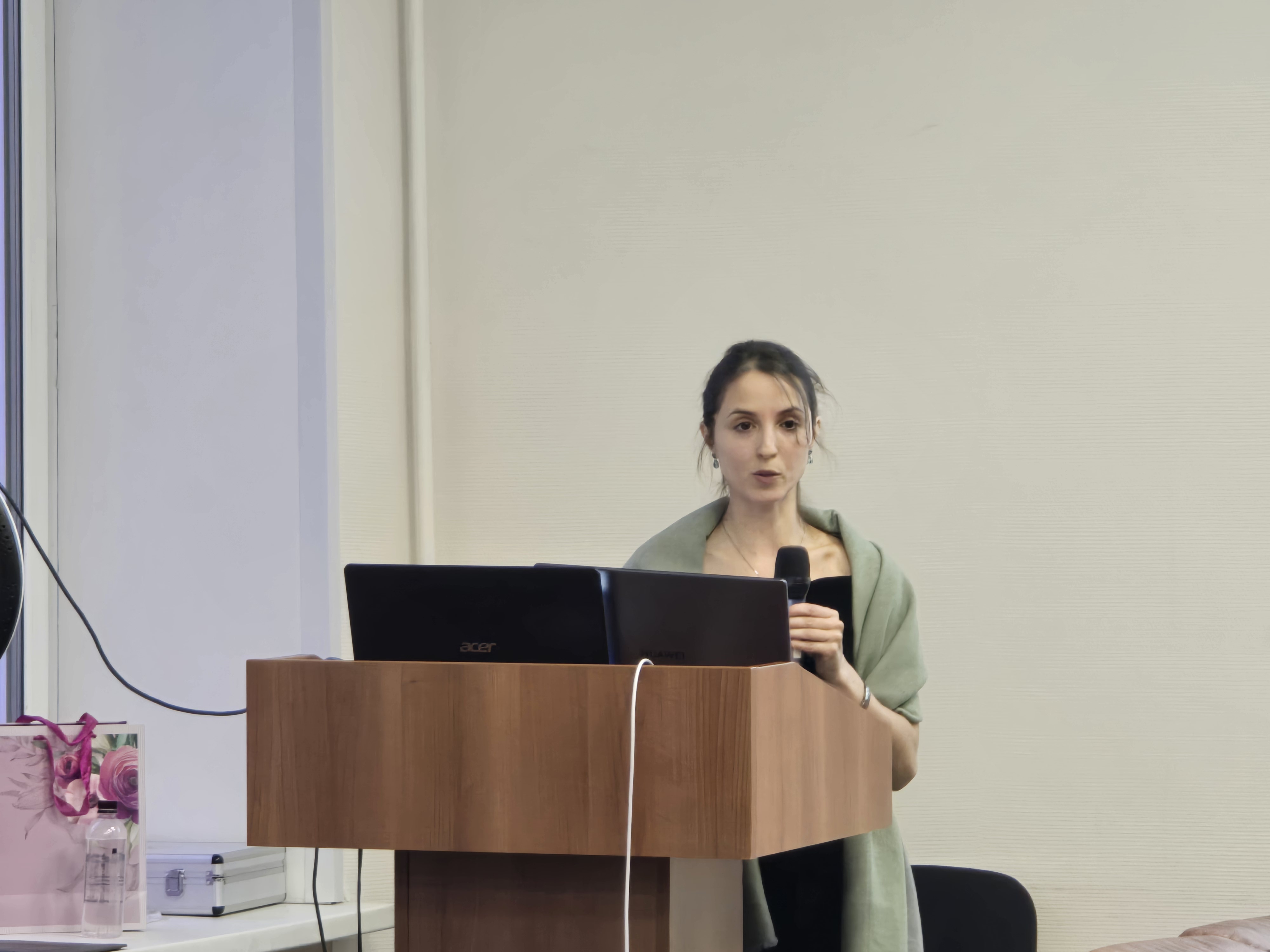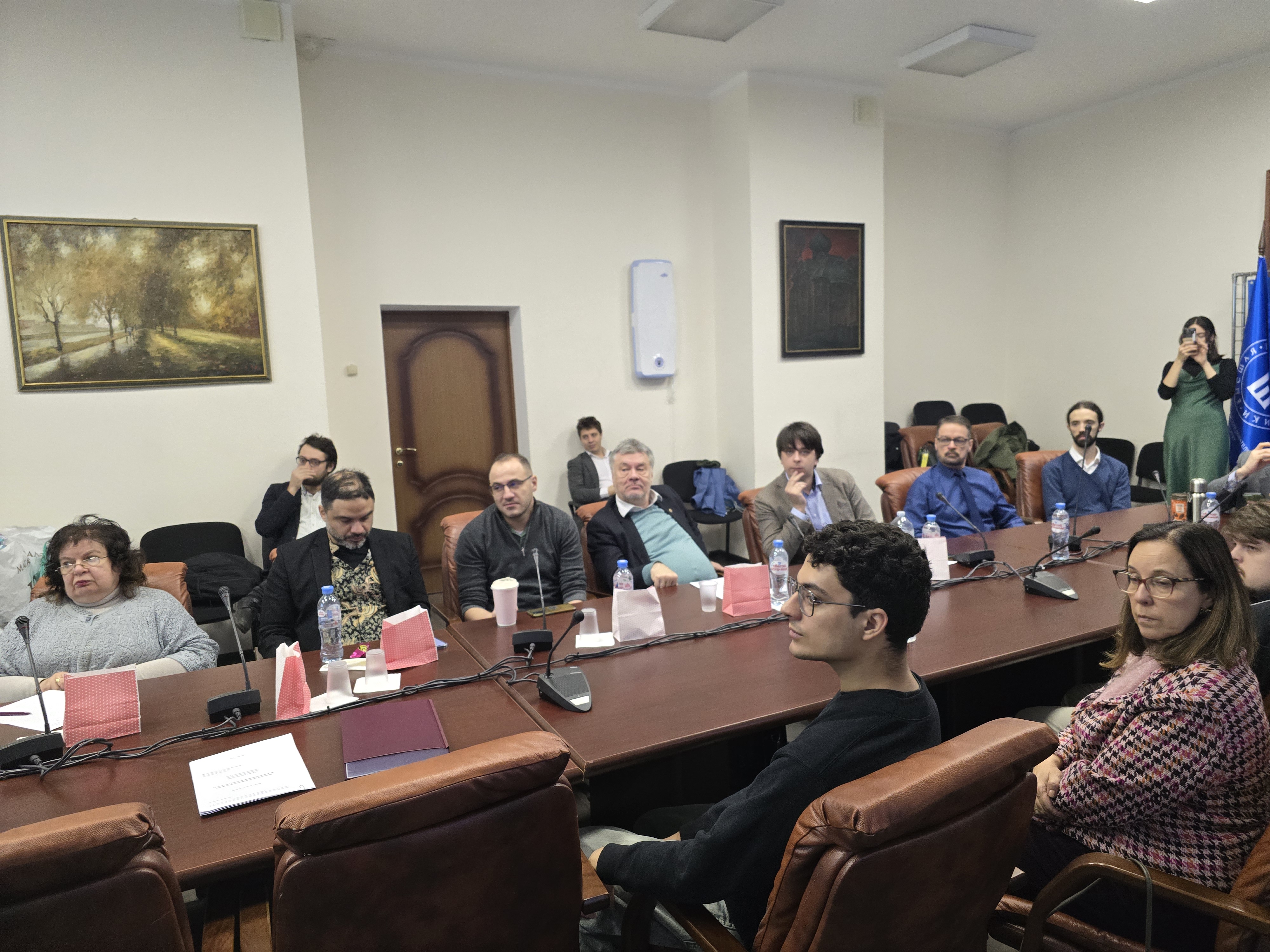‘The Defence Was Both Interesting and Nerve-Wracking’

Ana Livia Araujo Esteves, from Brazil, lecturer at the HSE School of International Regional Studies, has recently defended her PhD at HSE University. In her interview with the HSE News Service, she talks about her research into Brazilian–Russian relations, the difficulties of the thesis defence process, and her further plans in academia.
The topic of Ana Livia’s dissertation is ‘Brazilian–Russian Relations during the Administration of Brazilian President Jair Bolsonaro.’ Her mother, Leusa Esteves, came to Moscow for the first time specially for the PhD defence. The paper was prepared under the academic supervision of Olga Volosyuk.
Ana Livia Araujo Esteves
— What were Brazilian–Russian relations under Bolsonaro like?
— Jair Bolsonaro served as the Brazilian president from 2019 to 2022 and is often referred to as the ‘Brazilian Trump’ due to his similar ideological stance and style. Like Trump, Bolsonaro was known for making effusive and sometimes shocking statements to mobilise his audience, often using social media to engage with the public. This style extended to his foreign policy, where he made controversial remarks about Brazil's partners, such as China, Russia, and other non-Western countries. Initially, many expected Brazilian–Russian relations to face a serious crisis during this period. However, as we began our research, we discovered that, despite Bolsonaro's dramatic statements, Brazilian–Russian relations managed to develop quite well.
After a period of tension, relations between Brazil and Russia were able to rekindle and achieve a strong level of cooperation. This research challenged some stereotypes, particularly the assumption that Bolsonaro's presidency would negatively impact Russia. The findings showed that the reality was more nuanced than what was portrayed in the media.
This was an interesting research project because our expectations differed greatly from the actual outcomes. We hope to use this experience in the future to challenge other stereotypes as well
— Why did you choose this topic? What sparked your interest?
— It’s common for people to be interested in diplomatic relations when things are going well, but I wanted to explore the dynamics of diplomatic relations during times of crisis. I wanted to understand why such a crisis existed and whether common ground could be found even in difficult times. Brazilian–Russian relations are personally important to me, as these two countries are deeply connected to my own life. I wanted to explore the reasons behind the crisis and examine the mechanisms Brazil and Russia could use to overcome it, ensuring that their relationship remained stable despite political differences.
Moreover, I was also interested in understanding the foreign policy perspectives of the new far-right political movement in Brazil. This emerging political trend represents a significant shift for the country, and I wanted to understand their views on international relations and Brazilian foreign policy.
— Did you rely on open sources or conduct interviews for your research?
— Given that the Bolsonaro government ended recently, there wasn't as much secondary literature available as I had hoped. While there were some publications, they were not abundant. As a result, we focused on primary sources such as speeches and interviews with Brazilian authorities.
In Brazil, there is a law known as the ‘Law of Access to Information,’ which allows citizens to request government data. This law enabled us to access a significant amount of diplomatic correspondence related to Brazilian–Russian relations, which had not been made public
We also had access to travel data for every Brazilian government official who visited Russia, which was not publicised. This allowed us to uncover a lot of information that had not been available in the media or through official government channels.
Our research primarily relied on these official, unpublished documents and primary sources. We were the first to bring these documents into the academic discussion.

— Who do you mean by ‘we’?
— When I say ‘we,’ I am referring to myself and my scientific advisor Olga Volosyuk. She played a crucial role in the research process, particularly in working with archives. She has extensive experience in historical research and is the head of the Department of International Relations Studies. She was able to guide me in working with primary sources, something I was less aware of before working with her. She taught me how much new information can be discovered even from recent historical moments.
— How long have you been working on your PhD?
— The research for my PhD took about three years. I was granted an academic scholarship from HSE University, so I had to complete the PhD within the university's framework. I didn’t intend to extend the timeline, although it was possible to add one more year. The first year of my research coincided with Bolsonaro’s presidency, which allowed me to directly observe and participate in events related to Brazilian–Russian relations.
I attended press conferences during Bolsonaro's visit to Moscow, which allowed me to engage firsthand with the topics I later explored in my dissertation
— How was the dissertation defence?
— The defence was both interesting and nerve-wracking. It was conducted in Russian, with the dissertation translated from English. I had the additional challenge of presenting in Russian, which added complexity. The committee included specialists who had been following Brazilian–Russian relations for years, such as Lyudmila Okuneva and Boris Martynov from MGIMO, and Zbignev Ivanovsky from the Institute of Latin American Studies.
These experts shared similar doubts and curiosity about Brazilian–Russian relations, making the discussion very enriching. I was fortunate to be able to exchange ideas with them throughout my research process, and their input was invaluable. It wasn’t the first time I had spoken to them about the research, as we had engaged before, but having their direct involvement was a privilege.
— What is the main thesis of your dissertation?
— The key finding of my dissertation is that during Bolsonaro’s presidency, there were two distinct phases, each influenced by different foreign ministers. In the first phase, the foreign policy was highly ideological, which made relations with Russia—and with many other countries—difficult. When this ideological stance was replaced by pragmatism, Brazilian foreign relations, including with Russia, returned to a more rational and practical direction.
The research highlighted the detrimental effects of ideological foreign policy, particularly during crises like the COVID-19 pandemic, where Brazil struggled to build partnerships due to ideological disagreements
Ultimately, the return to pragmatic foreign policy benefited Brazil, demonstrating that ideological foreign policy can sometimes harm a country’s interests.

— What are your future professional plans?
— I am currently teaching at the university, where I became a lecturer in the last semester. I’m teaching courses on Latin American international relations, as well as on Ibero-American history, culture, and religion. I also teach a course on BRICS for a master's programme. For the time being, I plan to focus on teaching and continue my research on Brazilian–Russian relations. I’m particularly interested in developing a theoretical framework for studying these relations, using only Brazilian and Russian authors rather than Western theories. I believe this would contribute significantly to the field.
— Do you still work in media?
— Yes, I still work as a journalist for Sputnik. However, I plan to transition fully to university teaching in the near future. My work as a journalist helps me stay updated on Brazilian–Russian relations, as I conduct interviews and stay close to the developments. But I hope to focus entirely on academia soon.
See also:
From Political Science in Belgrade to HR Analytics in Moscow
Andrija Djokic, from Serbia, got his master’s degree with honours from the HSE Graduate School of Business in 2022. In his interview with the HSE News Service, he talks about the advantages of studying at HSE University, the importance of a knowledge-based approach to HR management, and the challenges of pursuing a career in a foreign environment.
From Mexico to Buenos Aires: HSE University–St Petersburg Enhances Cooperation with Leading Universities in Latin America
New mobility programmes, academic exchanges, and unexpected collaborations—these are the results of the HSE University–St Petersburg delegation's mission to Latin America. Read on to find out about the key agreements made.
‘Keep Working, Keep Publishing—Consistency Matters’
Ziyuan Zhu, from Beijing, China, is an international PhD student at the Institute for Public Administration and Governance at HSE University in Moscow. In this interview with the HSE News Service, Ziyuan talks about how studies can influence one’s outlook on life, comparing public service models in different countries, and why being a Chinese student in Russia is advantageous in research.
‘Artificial Intelligence Has Become the Lifeblood of the Global Economy’
Experts from HSE University took part in the BRICS Academic Forum (FABRICS) held in the capital of Brazil this year. The main theme of the event was to discuss cooperation among countries in the Global South amid geopolitical turbulence and rapid technological change. Academics and experts from BRICS member states and partner nations explored topics such as global healthcare, AI technologies, trade, climate change, and reform of the multilateral global security and governance architecture.
Viva o Brasil!: HSE University–St Petersburg Hosts Festival of Brazilian Culture
HSE University–St Petersburg wrapped up International Partners' Week with a lesson on Portuguese, a workshop on the dances of various Brazilian regions, a lecture about one of the most popular Brazilian musicians and a live performance by his devotees. Organised by the Bachelor’s programme in Media Communications, the 'Viva o Brasil!' festival invited students to explore the culture of one of the largest countries in Latin America.
First Lady of Brazil Visits HSE University
On May 7, Janja Lula da Silva—the First Lady of Brazil and a prominent advocate for sustainable development who initiated the Global Alliance Against Hunger and Poverty—visited HSE University. She held a meeting with HSE University Rector Nikita Anisimov, where they explored promising avenues for strengthening Russia–Brazil collaboration in science and education. HSE University also hosted a round table discussion titled ‘The Global Alliance Against Hunger and Poverty as a Key to Modern International Cooperation,’ featuring Janja Lula da Silva as a distinguished guest.
‘Brazilians and Russians Share a Unique Connection’
Tobias Vilhena de Moraes is a historian working at Museu Lasar Segall inSão Paulo, Brazil, and a faculty member of the Institute of Philosophy and Human Sciences at the University of Campinas. He is now working on a master’s degree at HSE University-St Petersburg.
‘My PhD Journey Was Made Possible by My Studies at HSE’
Tianxiong Yu, 25, completed his Master’s in Economics and Economic Policy at HSE University in Moscow. He spent the second year of the programme at the University of Luxembourg and has since enrolled there on a doctoral programme. While it is no longer a joint programme, HSE graduates continue to successfully pursue PhDs at international universities. Tianxiong spoke to the HSE News Service about his memories of his master’s course and how his time at HSE paved the way for his doctoral research.
HSE and University of Campinas Celebrate World Logic Day Together
On January 15, 2025, the Russian-Brazilian Colloquium on Logical Pluralism was held at the HSE International Laboratory for Logic, Linguistics and Formal Philosophy to mark World Logic Day. This event was part of the joint project ‘Pluralistic Perspectives on Logic and Formal Philosophy,’ implemented by the laboratory and the Centre for Logic, Epistemology and the History of Science at the University of Campinas (Brazil) under the International Academic Cooperation competition.
‘Getting a PhD Is Just the Beginning’
In autumn 2024, Yea Rem Choi, from South Korea, Junior Research Fellow at the International Laboratory for Supercomputer Atomistic Modelling and Multi-scale Analysis and assistant at the HSE MIEM School of Applied Mathematics, defended his doctoral dissertation on applied mathematics at HSE University. Yea Rem Choi talked to the HSE News Service about the soft skills that helped him in his research, how he is building a career, and why he chose HSE University for his doctoral studies.


